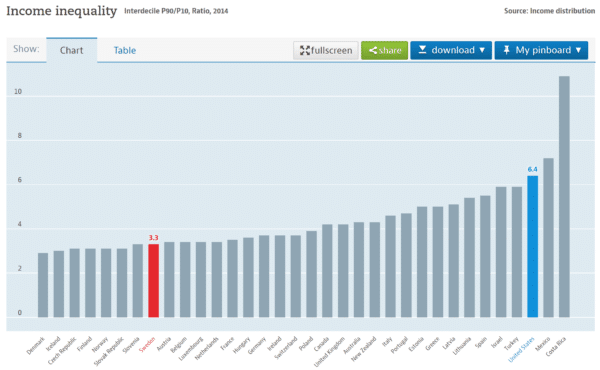I worked in retail for many years. I sometimes have nightmares that I’ll have to go back to it.
And yet, I think my retail experiences were relatively tame. A department story, a toy store, a gas station, Kinko’s. I never had to work as a busboy or waiter. I never ever had to work in food service at all.
So I consider myself blessed.
I make a decent living these days. And I have been reflecting on wages recently, and it was in that frame of mind that I walked into my local Subway sandwich shop one day this week for lunch.

As my order was a little customized and as the place was slow, I ended up chatting with the “sandwich artist” (shuddering at the patronizing name) for a few minutes. Among much else, I learned that she had moved from Connecticut, where she had worked at a Friendly’s. I’m terrible at ages, but she looked to be in her late 20’s, early 30’s. She was friendly, personable, and sharp.
Now, I know nothing important about this person.
But I do know that she probably makes around $9 an hour, according to Glassdoor.
And if you’re not appalled now, you should be.
Table of Contents
Listen to your own reaction
People’s immediate reactions to hearing that a reasonably intelligent 30 year old woman is making $9 an hour says a lot about their values.
“Well, if she wants more money, she should get a better job,” is way, way, way too common a response. It shows no empathy whatsoever, no sense of the reality of job markets, and basically says that we as a society create impossible-to-live-on jobs and anyone who takes them is a sucker.
I have a problem with all of this.
This Bloomberg article lays plain the issue of wealth inequality in 2017.
Here’s a chart from that article about the gap between the bottom 10 percent of wage earners and the top 10 percent of wage earners

Even not adjusting for inflation, that’s appalling.
Swedish common sense
In 2014, I visited a friend who was living in Sweden at the time. She said that the big difference between Sweden and the U.S. wasn’t that people worked in different kinds of jobs. There were still fast food jobs there; 171 Subway shops in the country as of time of writing.
No, the big difference was that in Sweden, those who worked in service jobs were still earning a living wage. The differential between the top percentile and the bottom percentile (P90/P10, as the wonks call it) was much smaller, 3.3, as opposed to 6.4, according to this chart from the OECD.

Imagine that. Imagine a world where low wage earners could still earn a living wage.
Why are we okay with the working poor?
The hardest thing for me, I reflected as I sat there eating my lunch was that there was no way I could justify that I earned so many times this woman’s salary. Or, more accurately, that I earned a living wage and she did not.
I have some specialized skills, sure. And specialized skills can be valuable. But we’re not just talking about wages here; we’re talking about people. Even if it requires no skills to make a sandwich (and dealing with customers takes serious skills, believe me) why do we have a situation where the disparity is so great? What possible benefit is there to having non-living wage jobs?
In short: there is no valid reason.
Please note that I’m not saying that we should all make the same amount. Even Sweden isn’t saying that. But I am saying that there is no defensible reason to have a full-time job that doesn’t pay a living wage. I’m not saying I should make less. I’m saying that she should make more.
And we all should be willing to help make that happen. Even if it means that our sandwiches cost more.
Do you disagree? I’m waiting to hear a valid reason, so please give it a go in the comments below.



One Comment
mpinard
So with you on this, Mike! Know any organizations working on this issue worth supporting/reading?